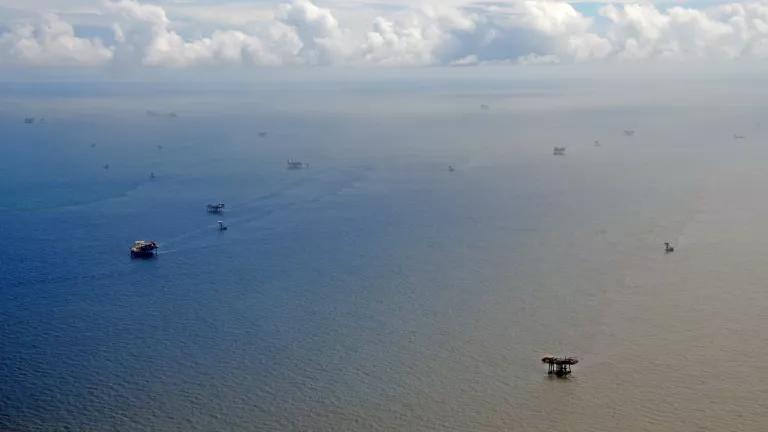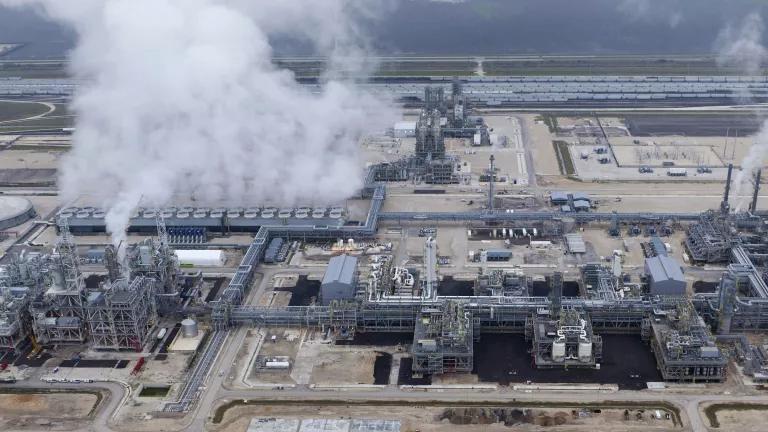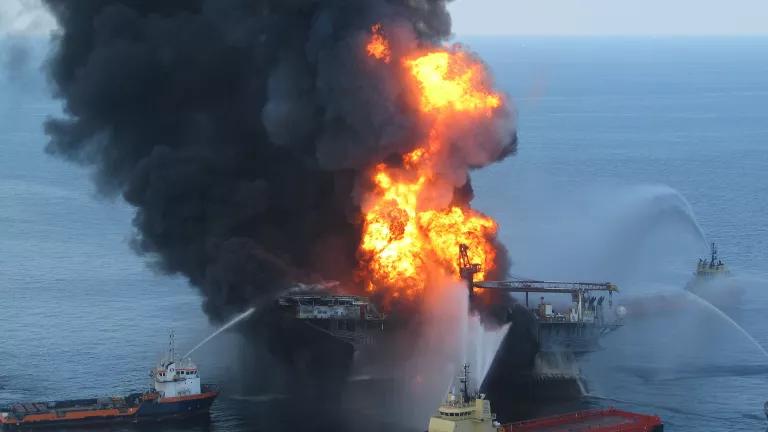NJ Residents Stand Strong Against NESE Fracked Gas Pipeline

On Monday, NRDC testified at a public meeting in New Jersey against the Northeast Supply Enhancement Project (NESE), a proposed fracked gas pipeline that could run from Raritan Bay in New Jersey to a pipeline offshore of the Rockaways in Queens, New York. We joined hundreds of New Jersey residents and numerous New Jersey State elected officials who voiced significant concerns about the project. The meeting was hosted by the New Jersey Department of Environmental Protection (NJDEP), which is currently considering the company’s application for a required Freshwater Wetlands Individual Permit.
NESE is an expansion of the already existing Transcontinental Gas Pipeline, a fracked gas pipeline that brings gas from the Gulf coast of Texas, Louisiana, Mississippi, and Alabama, through Georgia, South Carolina, North Carolina, Virginia, Maryland, and Pennsylvania to deliver gas to the New Jersey and New York City area.
NESE is still waiting for final approval from the Federal Energy Regulatory Commission (FERC), the federal agency responsible for approving or denying the natural gas pipeline, and the pipeline company has applied for required permits in the states it will be constructed in: Pennsylvania, New Jersey, and New York. As a result, the states are beginning to respond--so far, in April, New York temporarily denied a required water quality certificate for NESE, and Pennsylvania granted NESE water quality certification in June.
The Project, as proposed, includes the construction of a 32,000-horsepower gas-fired compressor station in Franklin Township and a 26-inch pipeline running 23 miles through Raritan Bay. These two projects alone have the potential to harm over 4,500 acres of forest, wetlands, and ocean floor during construction, and, should this project move forward, permanently harm 78 of those acres during the ongoing operation of the pipeline and compressor station. These areas support species of ecological, commercial, and recreational importance. The proposed Compressor Station 206 is located near habitat for two vulnerable bird populations, the American Kestrel and Bald Eagle. The Raritan and Sandy Hook Bays include 23 species of birds and marine life that are federally listed endangered or threatened, and 18 that are state-listed endangered or threatened.
Furthermore, as proposed, this pipeline would cross 6 aquifers, one of which provides drinking water for approximately 3 million residents in New Jersey. Specifically, Compressor Station 206 is located near New Jersey’s second largest aquifer.
The Northeast Supply Enhancement Project’s construction processes could also harm water quality in New Jersey. The on- and off-shore construction would remove important vegetation from forests and wetlands and compact soil, increasing erosion and storm water runoff, leading to sedimentation and turbidity in nearby waterbodies. It would also excavate portions of the seafloor, redistributing settled toxins like PCBs. These impacts would not only harm aquatic species, but also the health of our communities.
Every step required in pipeline construction has the potential to impair water quality. While the environmental impacts of pipelines begin at construction, they can persist for years after it is complete. Indeed, the many individual effects of pipeline construction can have a cumulative effect that is greater than the sum of its parts.

This project would also perpetuate our dependence on dangerous fossil fuels, which drive the climate crisis, and put our communities at risk.
It is important to note that this wetland permit is not the only tool New Jersey has to protect its citizens from the harms of water pollution and dangerous pipelines. Under Section 401 of the federal Clean Water Act, states are empowered to prevent the construction of a pipeline if the pipeline does not demonstrate that it will comply with state water quality standards. It would be wholly appropriate for New Jersey to exercise its powers to stop the pipeline under section 401 of the Clean Water Act, and we urge New Jersey to take this step.
Should it be built, the Northeast Supply Enhancement Project will cause significant harm to New Jersey’s water quality. It is time to stop building fossil fuel infrastructure that pollutes our drinking water and ruins our environment.
Contact Governor Murphy and ask him to deny 401 water quality certification for this project.



